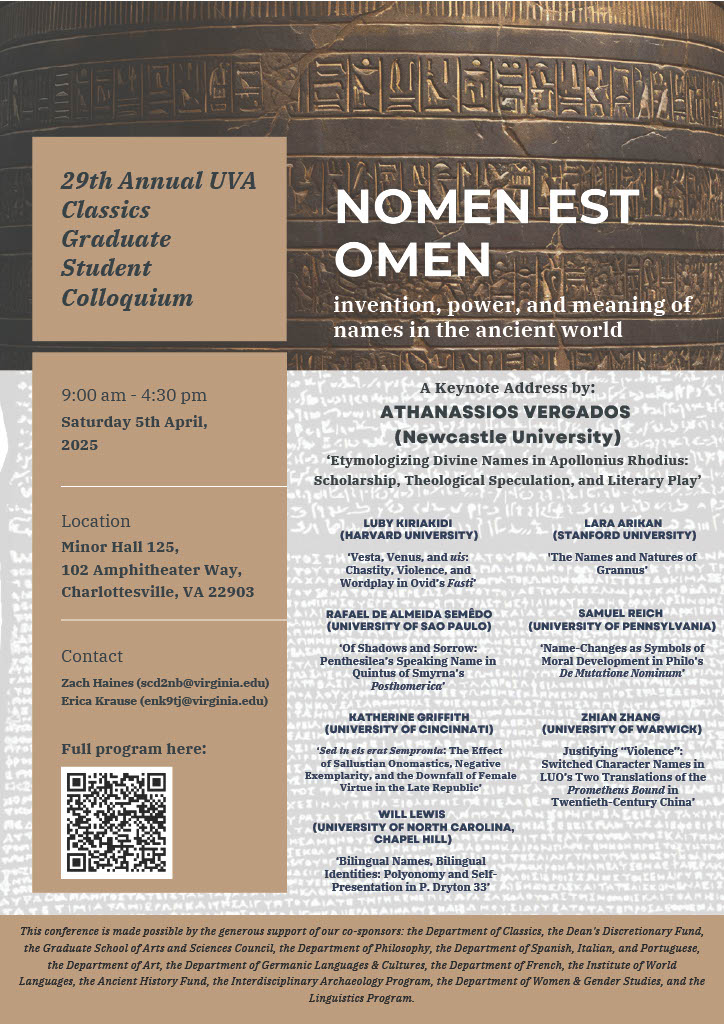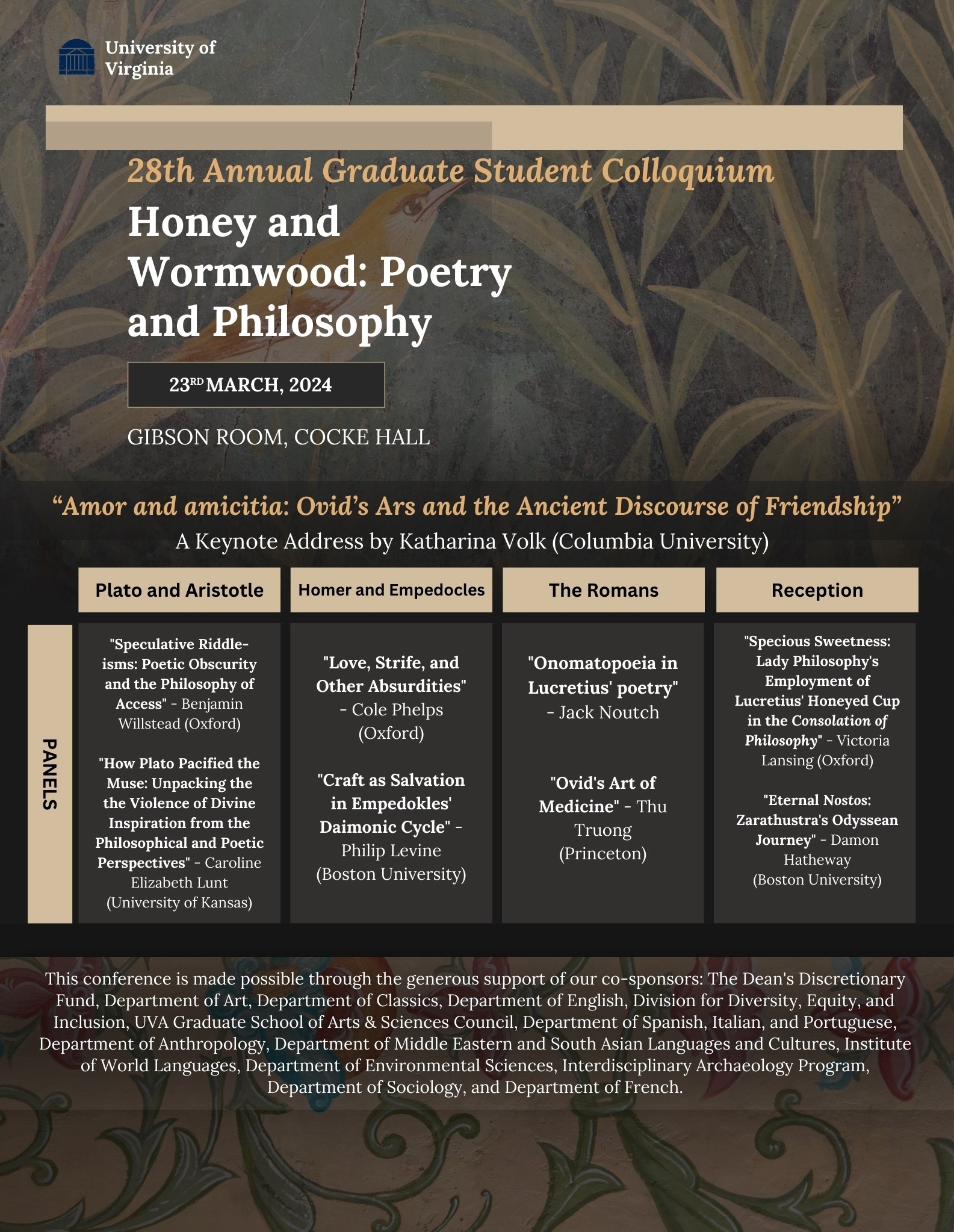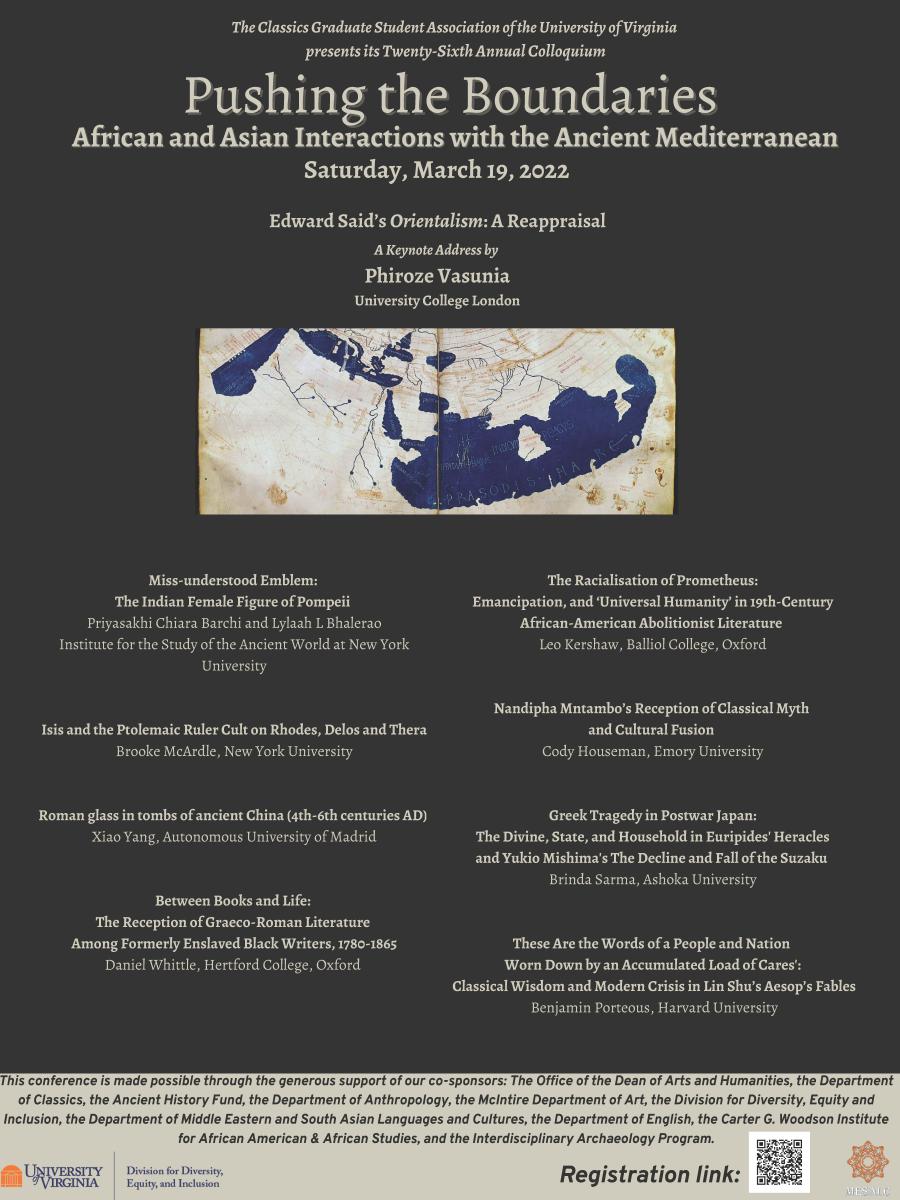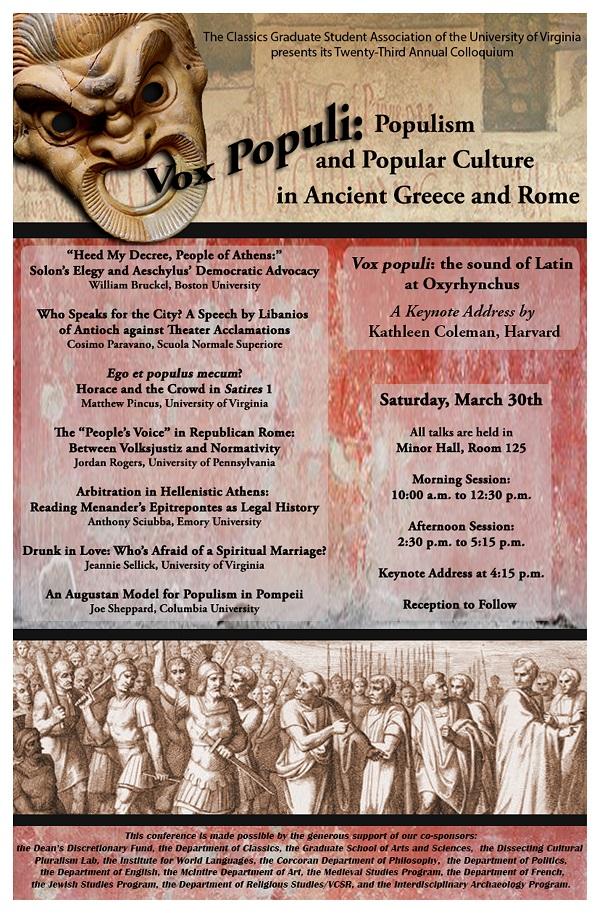Graduate Student Colloquium
29th Annual Graduate Student Colloquium
Invention, Power, and Meaning of Personal Names in the Greco-Roman World
April 5, 2025
Keynote: Athanassios Vergados, Newcastle University

2024 Graduate Colloquium
Honey and Wormwood: Poetry and Philosophy
28th Annual Graduate Student Colloquium
University of Virginia Dept. of Classics
March 23, 2024

2022 Graduate Colloquium
Registration: this event has passed
See Poster here.
2021 Graduate Colloquim
2020 Graduate Colloquim
2019 Graduate Colloquim

2019 COLLOQUIUM SCHEDULE
2019 COLLOQUIUM PROGRAM
VOX POPULI ABSTRACTS
VOX POPULI CALL FOR PAPERS
2018 Graduate Colloquim
Call for Papers: Please Read
SELECTED ABSTRACTS
Stephen C. Blair, Princeton University: "Race and Ovidian Reception in Charles Chesnutt's Conjure Tales"
Kaitlyn Boulding, University of Washington: "Adding Insult to Injury: the Glandes Perusinae as a Threat to Roman Masculinity"
Margaret Day, The Ohio State University: "Species Dysphoria in Ovid's Metamorphoses"
Ana Maria Guay, UCLA: "Vital Signs: Odysseus' Grazed Palms in Odyssey 5"
Glenn Maur, Tufts University: "The Enfreakment of Thersites: The Deformed Body as Spectacle in Homer's Iliad"
Nicole Nowbahar, Rutgers University: "From Soldiers to Women: Using Dress to Transform Bodies and Behavior"
2017 Graduate Colloquim
Gender in Antiquity: Anxieties, Transgressions, and Legacies
Twenty-first Annual Graduate Student Colloquium, Charlottesville, Virginia, Saturday, April 1, 2017.
The Classics Graduate Student Association of the University of Virginia announces its Twenty-first Annual Graduate Student Colloquium, to be held in Charlottesville on April 1, 2017. Victoria Wohl, Professor of Classics at the University of Toronto, will deliver a keynote address. The call for papers is given below. The remaining pages on this site are for our colloquium from last year. Once abstracts for this year have been accepted and a program has been set, these pages will be updated.
Transgression of gender roles in Greek and Roman sources is abundant and various. While the ancient Greeks and Romans did not conceptualize "gender" as a cultural phenomenon distinct from sex, modern applications of gender theory have revealed the many ways in which cultural expectations affected men and women in antiquity. This research has been fruitful not only in tracing the culturally constructed borders that delineated the sexes but also in revealing how frequently those boundaries could be crossed or unsettled. In the divine sphere, Dionysus the effeminate conqueror and Athena the warrior goddess both appropriate gender characteristics of the opposite sex. For mortals, by contrast, such gender reversals can have deadly consequences: Euripides' Medea and Livy's Tullia, for instances, represent cultural anxieties about ambitious women through their assumption of masculine traits. Accusations of gender transgression were also a perennial weapon in the arsenal iambic poets and orators, whether emasculating male rivals or ascribing sexual misconduct to targets of either sex. At the same time, more playful modes of gender inversion were also present, as Aristophanes' farces of women in power and the Augustan poets' celebration of their "soft" verses attest. Even the borders of biological sex were not conceived of as fixed: in addition to the sexual transformations of mythology, ancient medical writers describe the body's natural sex as disturbingly unstable.
We are interested in receiving papers that explore the complexity of gender in the ancient world, broadly conceived, including its reception in later periods and its influence on contemporary constructions of gender. We welcome submissions from Classics, Art & Archeology, Women & Gender studies, History, Philosophy, Anthropology, Medieval & Renaissance studies, and related disciplines. Possible topics include (but are not limited to):
- cultural anxieties about sex and gender in antiquity
- characters who grapple with gender expectations in literature an myth
- characters who seek out or experience gender or sexual reversals
- the ancient idea of "gendering" genres and texts (e.g. elegy vs. epic)
- visual constructions of gender in art and material culture
- anthropological studies about gender and ancient societies
- the reception of ancient constructions of gender in the Medieval, Byzantine, and Renaissance periods
- how the tradition of these constructions continues to influence modernity
Papers should be 15-20 minutes in length. Please send abstracts of no more than 300 words (not counting bibliography) to Kevin Scahill by no later than January 22th, 2017.
Any questions may be addressed to colloquium organizers Mary Gilbert or Peter Moench.